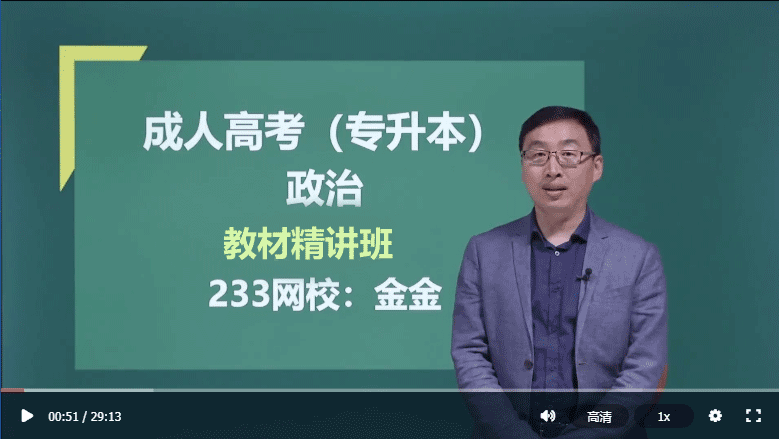For many people today, reading is no longer relaxation. To keep up their work they must read letters, reports, trade publications, interoffice communications, not to mention newspapers and magazines: a never-ending flood of words. In 1 a job or advancing in one, the ability to read and comprehend 2 can mean the difference between success and failure. Yet the unfortunate fact is that most of us are 3 readers. Most of us develop poor reading 4 at an early age, and never get over them. The main deficiency 5 in the actual stuff of language itself-words. Taken individually, words have 6 meaning until they are strung together into phrased, sentences and paragraphs. 7 , however, the untrained reader does not read groups of words. He laboriously reads one word at a time, often regressing to 8 words or passages. Regression, the tendency to look back over 9 you have just read, is a common bad habit in reading. Another habit which 10 down the speed of reading is vocalization—sounding each word either orally or mentally as 11 reads.
To overcome these bad habits, some reading clinics use a device called an 12 , which moves a bar (or curtain) down the page at a predetermined speed. The bar is set at a slightly faster rate 13 the reader finds comfortable, in order to “stretch” him.The accelerator forces the reader to read fast, 14 word-by-word reading, regression and subvocalization, practically impossible. At first 15 is sacrificed for speed. But when you learn to read ideas and concepts, you will not only read faster, 16 your comprehension will improve. Many people have found 17 reading skill drastically improved after some training. 18 Charlce Au, a business manager, for instance, his reading rate was a reasonably good 172 words a minute 19 the training, now it is an excellent 1,378 words a minute. He is delighted that how he can 20 a lot more reading material in a short period of time.
1.A.applying B.doing C.offering D.getting
2.A.quickly B.easily C.roughly D.decidedly
3.A.good B.curious C.poor D.urgent
4.A.training B.habits C.situations D.custom
5.A.lies B.combines C.touches D.involves
6.A.some B.A lot C.little D.dull
7.A.Fortunately B.In fact C.Logically D.Unfortunately
8.A.reuse B.reread C.rewrite D.recite
9.A.what B.which C.that D.if
10.A.scales B.cuts C.slows D.measures
11.A.some one B.one C.he D.reader
12.A.accelerator B.actor C.amplifier D.observer
13.A.then B.as C.beyond D.than
14.A.enabling B.leading C.making D.indicating
15.A.meaning B.comprehensionC.gist D.regression
16.A.but B.nor C.or D.for
17.A.our B.your C.their D.such a
18.A.Look at B.Take C.Make D.Consider
19.A.for B.in C.after D.before
20.A.master B.go over C.present D.get through
Many students find the experience of attending university lectures to be a confusing and frustrating experience. The lecturer speaks for one or two hours, perhaps 1 the talk with slides, writing up important information on the blackboard, 2 reading material and giving out 3 .The new student sees the other students continuously writing on notebooks and 4 what to write. Very often the student leaves the lecture 5 notes which do not catch the main points and 6 become hard even for the 7 to understand.
Most institutions provide courses which 8 new students to develop the skills they need to be 9 listeners and note-takers. 10 these are unavailable, there are many useful study-skills guides which 11 learners to practice these skills 12 .In all cases it is important to 13 the problem 14 actually starting your studies.
It is important to 15 that most students have difficulty in acquiring the language skills 16 in college study. One way of 17 these difficulties is to attend the language and study-skills classes which most institutions provide throughout the 18 year. Another basic 19 is to find a study partner 20 it is possible to identify difficulties, exchange ideas and provide support.
1.A.extending B.illustrating C.performing D.conducting
2.A.attributing B.contributing C.distributing D.explaining
3.A.assignments B.information C.content D.definition
4.A.suspects B.understands C.wonders D.convinces
5.A.without B.with C.on D.except
6.A.what B.those C.as D.which
7.A.teachers B.classmates C.partners D.students
8.A.prevent B.require C.assist D.forbid
9.A.effective B.passive C.relative D.expressive
10.A.Because B.Though C.Whether D.If
11.A.enable B.stimulate C.advocate D.prevent
12.A.independently B.repeatedly C.logically D.generally
13.A.evaluate B.acquaint C.tackle D.formulate
14.A.before B.after C.while D.for
15.A.predict B.acknowledge C.argue D.ignore
16.A.to require B.required C.requiring D.are required
17.A.preventing B.withstanding C.sustaining D.overcoming
18.A.average B.ordinary C.normal D.academic
19.A.statement B.strategy C.situation D.suggestion
20.A.in that B.for which C.with whom D.such as
编辑推荐:
锁定考点,突破难点,2018年成人高考零基础学员,短期锁分升级名校文凭>>

